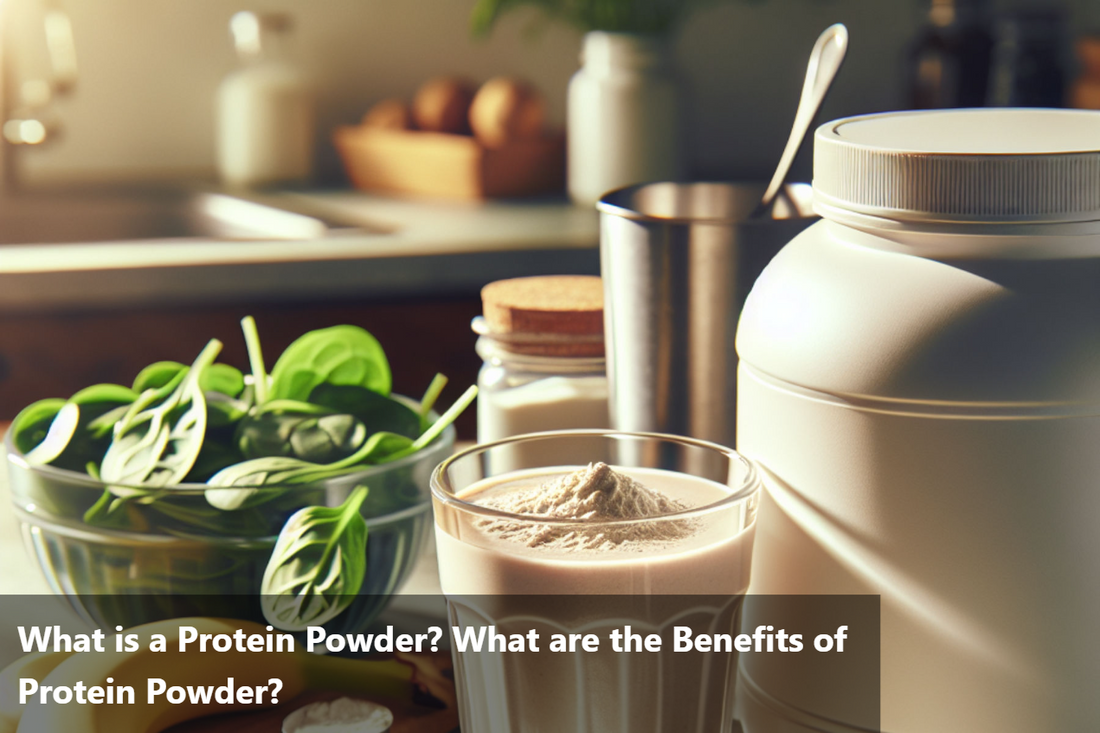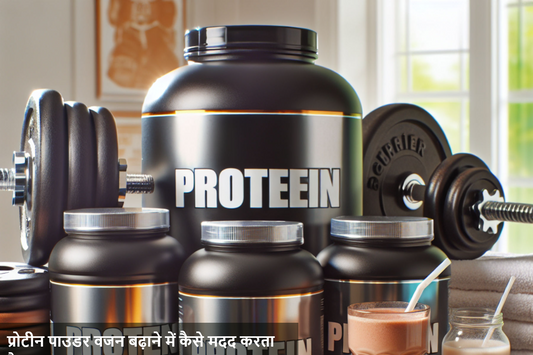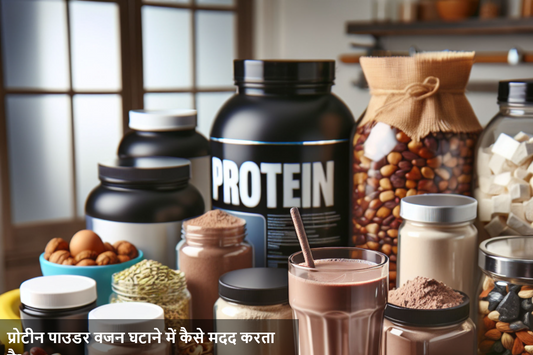Protein powder is a popular dietary supplement used by many individuals for various reasons.
It is a concentrated form of protein derived from animal or plant sources, providing a convenient way to increase protein intake. People often use protein powder as a convenient and efficient way to meet their daily protein requirements, especially for those striving to build muscle, support weight management goals, or enhance overall health.
One of the primary reasons individuals turn to protein supplementation is to promote muscle growth and repair. By consuming protein powder, individuals can ensure that their muscles receive an adequate amount of protein, which is essential for muscle recovery and development. Additionally, protein powder can aid in weight management efforts by promoting satiety and reducing overall calorie intake.
Protein powders come in various forms such as whey, casein, soy, pea, and rice protein, each offering unique benefits. Understanding the differences between these types can help individuals choose the most suitable option based on their preferences and dietary needs. Whether it's whey protein for fast absorption or plant-based protein for vegan-friendly options, there is a protein powder type to suit diverse lifestyles.
Types of Protein Powder
There are several types of protein powder available, derived from both animal and plant sources, as well as milk-based sources. Here are some of the most common types:
Animal Protein Powders:
Whey Protein: One of the most popular protein powders, whey protein is derived from milk during the cheese-making process. It is rich in essential amino acids and is quickly absorbed by the body, making it ideal for post-workout recovery.
Casein Protein: Also derived from milk, casein protein forms a gel-like substance in the stomach, leading to slower digestion and a sustained release of amino acids into the bloodstream. It is often consumed before bedtime to support muscle protein synthesis overnight.
Plant Protein Powders:
Soy Protein: Made from soybeans, soy protein is a complete protein source containing all essential amino acids. It is suitable for vegetarians and vegans and has been linked to various health benefits, including heart health and hormone regulation.
Pea Protein: Derived from yellow peas, pea protein is rich in protein and is easily digestible. It is hypoallergenic and suitable for individuals with allergies or sensitivities to other protein sources.
Rice Protein: Made from brown rice, rice protein is hypoallergenic and gluten-free. While not a complete protein on its own, it can be combined with other plant-based protein sources to create a complete amino acid profile.
Hemp Protein: Derived from hemp seeds, hemp protein is rich in omega-3 fatty acids and fiber. It is also a good source of essential amino acids, although it may not contain as much protein per serving as other plant-based options.
Milk Protein Powders:
Milk Protein Isolate: A combination of whey and casein proteins, milk protein isolate provides both fast-acting and slow-digesting proteins. It is often used in meal replacement shakes or as a convenient protein source.
Milk Protein Concentrate: Similar to milk protein isolate but with a lower protein content, milk protein concentrate contains a balance of whey and casein proteins. It is often used in protein bars, snacks, and beverages.
Health Benefits of Protein Powder
Muscle Growth and Repair: Protein is essential for building and repairing muscle tissue. Consuming protein powder, especially after exercise, provides the body with the amino acids needed to support muscle protein synthesis, leading to muscle growth, recovery, and repair.
Weight Management: Protein is known for its ability to promote feelings of fullness and reduce appetite, which can aid in weight management or weight loss efforts. Including protein powder in meals or snacks can help control hunger cravings, regulate food intake, and support a healthy metabolism.
Blood Sugar Control: Unlike carbohydrates, protein has minimal effects on blood sugar levels. Consuming protein powder as part of a balanced meal or snack can help stabilize blood glucose levels, preventing rapid spikes and crashes and supporting better blood sugar control, especially for individuals with diabetes or insulin resistance.
Bone Health: Protein is not only essential for muscle health but also plays a role in maintaining bone strength and density. Adequate protein intake, including from protein powder, can help prevent bone loss and reduce the risk of osteoporosis, particularly in older adults.
Exercise Performance: Protein powder can enhance exercise performance and recovery by providing the body with the necessary nutrients to fuel workouts and support muscle recovery. Consuming protein powder before or after exercise can improve muscle strength, endurance, and recovery time.
Convenience and Versatility: Protein powder is a convenient and versatile dietary supplement that can be easily incorporated into various recipes and meal plans. It can be mixed with water, milk, or other beverages, added to smoothies, shakes, oatmeal, yogurt, baked goods, or used as a protein-rich ingredient in cooking and baking.
Nutritional Support: Protein powder is a concentrated source of high-quality protein, containing essential amino acids needed for overall health and well-being. It can help fill in nutritional gaps in the diet, especially for individuals with limited access to protein-rich foods or those following vegetarian or vegan diets.
Muscle Preservation During Weight Loss: When following a calorie-restricted diet for weight loss, adequate protein intake is crucial to prevent muscle loss. Protein powder can help individuals maintain muscle mass and metabolic rate while reducing body fat, supporting long-term weight loss success.
How to Choose the Right Protein Powder
Selecting the perfect protein powder that aligns with your fitness objectives and dietary needs is crucial for maximizing its benefits and achieving desired results. Here are some essential tips to guide you through the process:
Identify Your Objectives: Determine whether your goal is muscle gain, weight loss, or general health maintenance. Different types of protein powders cater to specific needs.
Consider Protein Sources: Evaluate the quality and source of protein used in the powder. Whey protein is popular for muscle building, while plant-based options like pea or soy protein are suitable for vegans or individuals with dairy allergies.
Check Ingredient List: Examine the ingredients list to ensure it does not contain any components you may be allergic to or artificial additives that may not align with your dietary preferences.
Quality Matters: Opt for high-quality protein powders that are minimally processed and free from fillers or excessive sugars to get the most out of your supplement.
Seek Professional Advice: Consulting with a nutritionist or fitness expert can provide personalized recommendations based on your unique requirements and health conditions.
Bottomline
As we think about how important it is to use protein powder, we see that picking the right kind of protein powder connects with each person's fitness goals and food needs. Whether you go for whey, casein, soy, pea, or rice protein, every type has its own good points that suit different tastes and needs. In the big picture of staying fit and eating right, protein powder stands out as a basic building block that helps muscles recover, makes metabolism better, and makes us feel full. Essentially, protein powder is about more than just adding something extra; it's about caring for our bodies as a whole and making our fitness goals better. With a mix of good things, ingredients, and personalized options, protein powder shines as a top choice for nutrition, leading us on a path to being strong and full of life.
This Blog post is an initiative by DiabeSmart, to provide accurate and Nutritionist / Doctor approved information related to Diabetes. DiabeSmart is India's first Food brand designed specifically for Diabetics, that has been clinically tested on Diabetics and Pre-Diabetics to deliver 55% - 70% lower Sugar spikes. DiabeSmart is part of Lo! Foods - India's leading brand for Everyday Functional Health foods.







